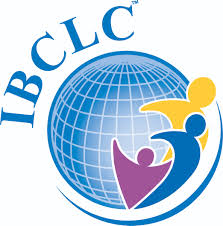
What is an IBCLC?

It’s International IBCLC Day on Wednesday, 1st of March! There are currently 33,492 IBCLCs in 125 countries, according to the IBLCE, the International Board of Lactation Consultant Examiners. So today, we will explain what an IBCLC is and how to become one. We know this is not a universally known figure in healthcare and many people wonder what these letters mean. So we wanted to dedicate this article to answering your questions on what an IBCLC is and how to obtain this certification. And, of course, if you have any other questions, let us know!
What is an IBCLC?
An IBCLC is a person, male or female, who has demonstrated knowledge and skills in the field of lactation. To become an IBCLC, you must meet a series of prerequisites and pass an exam that must be renewed every 5 years to ensure the best care for mothers and babies. The acronym IBCLC stands for International Board Certified Lactation Consultant.
Who can qualify to become an IBCLC?
At the moment, there are three ways to become an IBCLC. In general, to be eligible for the exam, many hours of practice – depending on the type of pathway- of in-person or online care for breastfeeding mothers, other hours of specific theory training in lactation and, sometimes, supervised practice is required.
Do you have to be a healthcare professional to become an IBCLC?
Some years ago, anyone could take the exam to become an IBCLC, regardless of whether they were healthcare professionals. This requirement has changed. Now, if you are not a healthcare professional, you have to complete an entry-level health training that consists of 14 health-related subjects set by the IBCLC committee and gives you access to sit for the exam. LactApp offers this training online in Spanish together with Ramon LLull University.
What are the other requirements?
The three different pathways to becoming certified as an IBCLC raise many doubts. You can find more information here. One of the requirements is to demonstrate hours of theoretical education in lactation. Our LactApp Postgraduate Course in Lactation (online in Spanish) covers all the necessary hours.
What ethical obligations does this qualification involve?
IBCLCs must comply with a strict code of professional conduct. A crucial part of the IBCLC’s duty to protect mothers and their children is adherence to the principles and goals of the International Code of Marketing of Breastmilk Substitutes, and subsequent World Health Organization resolutions.
The IBCLC Code of Professional Conduct consists of eight principles:
- IBCLCs must provide services that protect, promote and support breastfeeding.
- They must act with diligence
- They must maintain the confidentiality of their clients
- They must report accurately and completely to other members of the healthcare team.
- They must exercise independent judgment and avoid conflicts of interest.
- They must maintain personal integrity
- They must uphold the professional standards expected of an IBCLC
- and comply with IBLCE disciplinary procedures if necessary.
What is the difference between an IBCLC, a midwife and a lactation consultant?
The fundamental differences are determined by their training. Midwives focus their work on the woman’s reproductive cycle, specializing in physiological birth. Lactation consultants are volunteer mothers who have breastfeeding experience and specific training. IBCLCs are professionals who have been trained in all disciplines related to breastfeeding and achieved a demonstrated specific experience in the direct care of breastfeeding mothers. In this sense, the three figures are compatible, and many midwives are trained, in a complementary way, to become IBCLCs to improve the care they offer to breastfeeding mothers.
How can I find an IBCLC?
Many countries have their own websites where you can find most of the IBCLCs that exist in that country, for example:
- In the United States, on the USLCA’s IBCLC directory
- In the UK, on the website of Lactations Consultants of Great Britain
- In Australia and New Zealand on the website of LCANZ
- There is also a registry on the international website.
Are there IBCLCs in LactApp?
LactApp was co-founded by Alba Padró, who has been an IBCLC for nearly 15 years. Three more team members are certified IBCLCs, and two of them are midwives. IBCLCs must renew their accreditation every 5 years, which implies knowing updated information and keeping up to date with evidence on lactation to help mothers. The fact that the LactApp mobile App (available for iPhone or Android) is entirely written and updated by IBCLCs means that it contains evidence-based and up-to-date information for mothers. At the same time, the information is offered with respect and sensibility and with the backing of an international body.
Related links:
- IBLCE International (International Board of Lactation Consultant Examiners)
- ILCA (International Lactation Consultant Association)